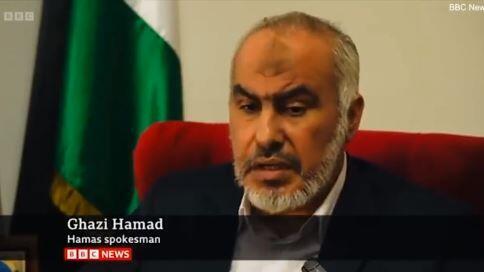Getting your Trinity Audio player ready...
For a dual citizen of Britain and Israel, and a historian, it is astonishing to read attacks made by British commentators on Israel’s conduct of the current war. These betray a grotesque misunderstanding not only of the past, but also of the present. Countering these mistaken views is vital for the future both of Israel and of the West, for if these opinions prevail and inform policy, a far worse disaster than October 7 will soon follow.
Read more:
The first significant problem that is apparent when considering British critiques of Israeli policy is a misunderstanding of the scale of the catastrophe that Israel has already experienced. Any comparison between the Troubles in Northern Ireland and the Israel-Hamas war, as attempted by the former Defense Secretary, Ben Wallace MP, is simply facile. A total of 3,532 people were killed during the Troubles, of whom 1,397 were either British or Loyalist. These killings spanned a period of more than 30 years. In Israel, more than 1,200 people were slaughtered with inhuman savagery onOctober 7. In a single day. Another 129 remain hostages in Gaza. The scale and intensity of the casualties bears no comparison with events in Northern Ireland.
To properly understand the scale of the mass murder that took place, it is necessary to remember that Israel’s total population is less than 9.8 million people. This is more than six times smaller than Britain’s 66 million. Adjusting Israel’s losses to Britain’s greater population size, more than 8,000 would have been murdered in Britain in an equivalent attack, twice as many as were killed during the entirety of the Troubles, on both sides.
The second problem with British attacks on Israel’s actions is a failure to understand the strategic context. If Britain had been subjected to such an onslaught, there is doubt that it would have responded with extraordinary violence. When Britain fought the Nazis during the Second World War, 60,595 civilians were killed by German bombing and rocket attacks on the British Isles. In response, Britain and later also America unleashed the single most extensive bombing offensive in human history, killing some 353,000 Germans, as far as can be determined from incomplete records.
There was no talk of proportionality then, or of its absence. Britain was fighting a war of national survival, and its goal was not “obliterating vast swathes” of enemy territory, as Mr. Wallace charges Israel is now doing. It was, to remember the words of a more illustrious Conservative politician, Mr. Churchill, “victory, victory at all costs, victory in spite of all terror, victory, however long and hard the road may be; for without victory, there is no survival.”
(Former Prime Minister Naftali Bennett stands up to BBC narrative about the war)
This is Israel’s goal now. To win, and therefore to survive. If Israel does not obliterate Hamas, the latter shall attack again and again, as Hamas has promised to do. Making victory all the more urgent is the fact that Israel is already under attack from Hezbollah on its northern border. That terrorist organization possesses up to 100,000 fighters and up 150,000 rockets and missiles.
British defense commentators are certainly aware that the British Army has about 76,000 trained soldiers, so it may in fact be smaller than Hezbollah, without even accounting for the forces of Hamas and various other terrorist organizations. The Army, having given up its American Lance missiles in 1991, also lacks anything remotely resembling Hezbollah’s arsenal of long-range rockets and missiles.
Quite simply, the severity of threats that Israel confronts is incomparable either to the Troubles or to the Allied wars in Afghanistan and Iraq. Looming in the background is Iran, which the British Government acknowledges is a “long-term funder and supporter” of anti-Israeli terrorism, and is months away from having a nuclear bomb if it decides to make one, according to an official American assessment.
Britain is not in a position to label Israel’s methods as “crude and indiscriminate” as Ben Wallace did, or allege that Israel's offensive constitutes a “Gaza killing spree”, as the Guardian’s Simon Tisdall has outrageously done. Britain has not fought anything resembling a war of survival since 1945. Israel is fighting one now, and not for the first time. In 1948, 1967 and 1973, the country was in immediate danger of destruction. Now, in 2023, half a century after Israel’s last great military crisis, it faces an array of murderous enemies. These cannot, for now, bring about Israel’s immediate destruction, but they have already perpetrated the worst massacre in the entire history of Zionism.
The Geneva Conventions, so strongly and broadly supported by British officialdom, belong to an entirely different age. They entered into force years after Allied victory in the Second World War, in October 1950. They were ratified by Britain in 1957, the year after American pressure had compelled a British withdrawal from Suez. Since then, with the exception of the Falklands War, Britain has not conducted a single significant military campaign without the United States. In none of those campaigns, including the Falklands, was Britain’s very survival imperiled.
The limitations imposed by the post-war Conventions are deemed acceptable by Britain because it, falsely, assumes that the days of struggling for survival have receded into the realm of national memory, and hence extensive restrictions on the use of force in the present are wholly acceptable.
Israel, meanwhile, has to fight Hamas, which uses human shields so routinely that the tactic has been formalized in its operational manuals. Hitler’s Germany, for all its criminality, did not think of this. Nor did it build an endless warren of tunnels “under hospitals, schools, kindergartens.” The Conventions were drafted decades before Hamas was founded, and take no account of such systematic and deliberate breaches of the laws of war.
It is critically important in this context for both Israelis and Britons, and the wider world, to understand that the central problem of the war is not that “escalation is now a very real danger” as Simon Tisdall would have it. Nor is it the “the likelihood that [the war] will spread”, as suggested by the editorial board of The Telegraph. Rather, the danger is that the international community, impelled by a misapplication of the restrictions of the Geneva Conventions to a warzone in which these have been systematically exploited by both Hamas and Hezbollah to facilitate their attacks, forces Israel to curtail its offensive. This will mean that murderous terrorist organizations will continue to exist and to function in areas immediately abutting Israeli towns and villages. The most obvious and uncontroversial lesson of October 7 is that such an outcome can only lead to another, greater, massacre.
It is the deliberate criminality of Hamas that is the central cause of Palestinian casualties in Gaza, and Israel has no choice but to obliterate Hamas, especially in the context of the extraordinary dangers it faces on multiple fronts. Britain and the wider West should support Israel’s self-defense, not delegitimize it by making spurious comparisons."
- Dan Zamansky is a British-Israeli independent historian and author of The New World Crisis, a Substack analysing the problems of today. His manuscript of this article may be found at Substack




